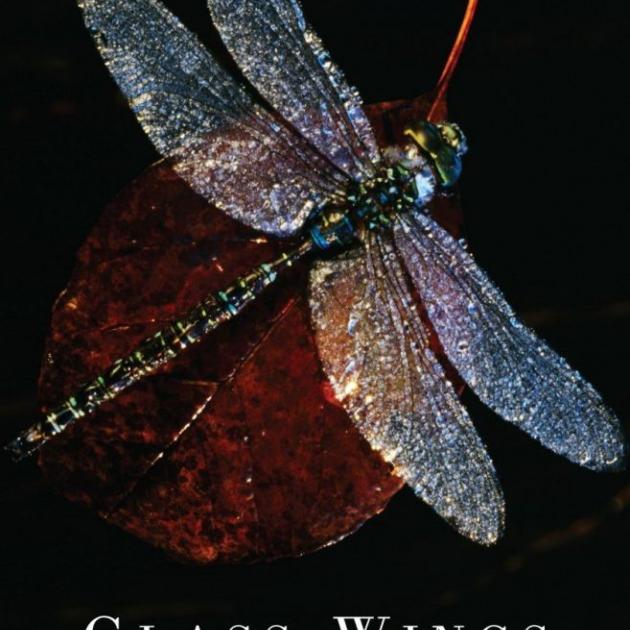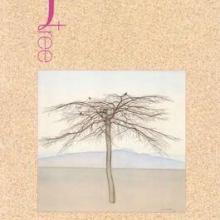
This 14th book of poems for Wedde contains significant sequences. The title sequence is over 35 pages. The reader has to sit in water for a while. You can sense the delight, fear and humour. Wedde wrote this piece while having the Michael King Writer's Residency in 2009. This is poetry that invites play. Emotional and intellectual pleasure is won in these poems. Wedde is modest, clear and accurate in his work. Knowing your classics will help deepen the experience.
Another sequence ''Shadow Stands Up'' was published serially while New Zealand's Poet Laureate. Wedde hits on significant universal themes like love, family, death, beauty and home.
''18''
What happens to memory
when the house is emptied, where
have they all gone, those sunlit
people by the wide windows,
table and chairs whose lunch-time
shadows the patient dog lay
down in, where has the music gone,
the sound of the front door
opening, who's coming in,
what will happen to them when
the door closes on empty
rooms, on an empty body
which light fills without casting
the shadows of what we know?
The Life-Guard puts layers of detail on our world in time, physicality, mythology and incident. This is all killer, no filler. Wedde writes poems that are full of humour, soul and dignity.

Victoria University Press has achieved a coup publishing her new collection, Glass Wings.
In it, Adcock writes about childhood, identity, roots and rootlessness, memory and loss, animals, insects and dreams in over 50 new little poems. Adcock likes things to be orderly and make sense - but always states when this is not so. She is sharp and laid-back at the same time.
Her poems can come across as a bit abrasive at first, but become addictive the third or fourth time around. Her thoughts might be dark, messy and conflicted but she is always explicit. Her poems are personal and full of detail. I loved Adcock's sequence ''Campbells'' that contained ''Elegy for Alistair'' (i.m. Alistair Te Ariki Campbell, 1925-2009):
Now he is dead, who wrote
'Now he is dead, who talked
of wild places and skies
inhabited by the hawk' -
thereby captivating
readers and composers,
envious fellow-poets,
multiple admirers
of his romantic looks,
and silly girls like me,
foolish enough to marry
what I wanted to be
before I knew who I was
but wise enough to have chosen
a kind and dedicated
father for our children
who happened as well to have
an exquisite ear and eye
for a rhythm or a phrase.
Beautiful poet, goodbye.

These poems are the best Camp has produced. There is a thoughtful loneliness connected with them as Camp lived out her days in Germany.
''iii''
Sweetheart when the axe is falling on that river
I am the sound that travels slow across the water
I am the runaway hiding in the forest
The petite forest called your hair and heart.
Sweetheart when time is falling in your eyes
That broken limb of time and tired bear
I am the one that wanders in the forest
And finds you in that forest, in the haunted forest of your hair.
Sweetheart when the snow is falling in your hand
I am the quiet bits of air it's falling through
And I am the quiet ground it's falling to
And I am the falling one and you are falling too.
Camp shows how being alone can encourage independence, resourcefulness, understanding and empathy. Snow White's Coffin has a sense of balance and perspective. The bright, fluffy thoughts of Unfamiliar Legends of the Stars (VUP, 1998) seem so long ago. This new collection is canny, sharp and subtle. Good poems want a rhythm and flow. These new poems build in an effortless and appealing way. If you like your poetry clear, intelligent, deep and quirky this little book will not let you down.

Aurelius Augustine, Rumwold, Elizabeth of Hungary, Margery Kempe, Christina Rossetti and Jeff Mangum make up this epic poem. There is a sense of intricacy and exactitude in this big work over a sprawling 200 pages. This is far more sophisticated than her debut collection of poems The Propaganda Poster Girl (VUP, 2008). This young woman's work is massive in scope. This is a poem full of angst and atmosphere:
... Some see beauty in a buxom sixteen-
year-old chest, others in the lathered
necks of horses or the painted
masks, of actors or buttery, peppery
mouthfuls of wine after a day's labour.
I suggest that these are mere diversions,
The words for fish and sea
and star, the lights that come to mind,
light and the mind, the underside
of eyelids and painful searching
for an answer that might solve
a lack of beauty, all of these are created
by God who is both beauty
itself - the noun, the instance, the sound
of the word - and at the same time
something else.
The whole thing reads a bit like Dan Brown's Da Vinci Code (no relation). A few historical and scientific inaccuracies might crop up but because this is poetry there are some intense human moments captured too. At times it is impassioned and hair-raising, other times it offers a strange, unsettling beauty.
The institutional Church takes a bit of a battering, but what emerges is a strong hope in humanity. Brown is doing something big here.

Bernadette Hall has done an excellent job putting together a classy collection of the best of Anker's published poems. She has included a number of never-seen-before poems in The Judas Tree. Children remember everything. They just cannot always interpret events. It is adults who forget.
Three of Anker's uncles died in France in World War 1. She was a ''war widow'' in World War 2. It was a poem about Anker's uncles that was included in the Tomb of the Unknown Warrior in 2004:
''Ellen's Vigil''
Benjamin Isaac Tom
Passchendaele Ypres and Somme
three ovals float
on the cold wall
plastered whiter
than their bones,
young, khaki'd,
their bud-tender eyes
premonition filled.
Ellen,
her three boys gone,
transplanted seventy years
from Lurgan's linen
no longer counts crops
in season
but digs, diligently, delicately, digs down
further down
her spade searching
her garden for
three lost sons
Thomas Isaac and Ben.
These poems are unkempt, but this does not detract from the warmth they have to offer. You can easily spot the soulful seriousness of these poems but Anker's lust for life is unquestionable. Anker offers poems of promise, loss and love.
- Hamesh Wyatt.

